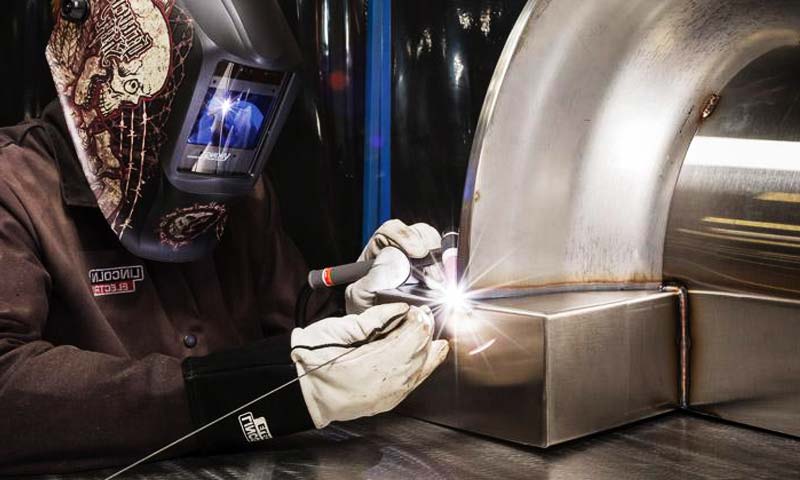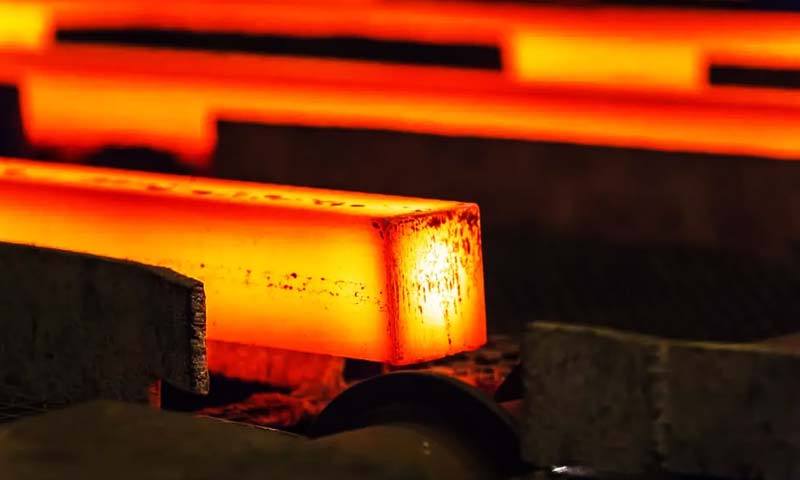1. Uvod
2507 Super dupleks nehrđajući čelik, označen kao US S32750 ili U 1.4410, is a high-performance alloy known for its exceptional combination of snaga, Otpornost na koroziju, i žilavost.
Classified as a super duplex stainless steel, it features a two-phase microstructure of austenite and ferrite in nearly equal proportions, providing superior properties over conventional stainless steels and even standard duplex grades like 2205.
The alloy is engineered to perform in highly corrosive, Visokoškolsko okruženje, making it indispensable in offshore oil & gas platforms, Postrojenja za desalinacije, and aggressive chemical processing environments.
This article delves into the chemical, mehanički, fizički, and metallurgical aspects of 2507, offering a professional and data-backed perspective.
2. Šta je 2507 Super dupleks nehrđajući čelik?
2507 je a super dupleks nehrđajući čelik alloy primarily composed of 25% hrom, 7% nikl, i 4% molibdenum, with additions of nitrogen.
It is designed to offer enhanced resistance to Korozija izazvana hloridom, odličan Mehanička čvrstoća, i Termička stabilnost.
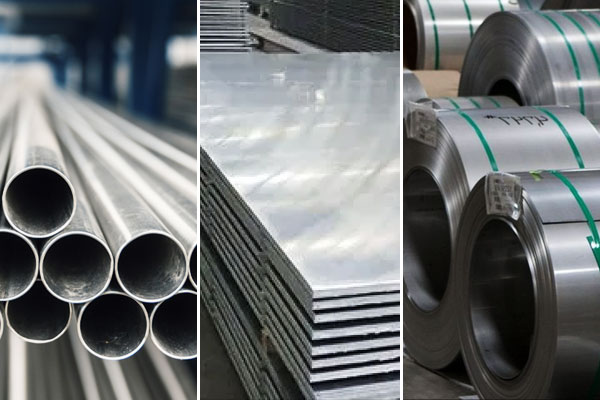
Hemijski sastav (% tipičan):
| Element | Tipičan (%) | Funkcija |
| Hrom (CR) | 24.0 - 26.0 | Increases general and localized corrosion resistance |
| Nikl (U) | 6.0 - 8.0 | Stabilizira Austenit, Poboljšava žilavost i zavarivost |
| Molibdenum (Mo) | 3.0 - 5.0 | Pojačava otpornost na koroziju i pucanje korozije |
| Azot (N) | 0.24 - 0.32 | Strengthens alloy and increases resistance to SCC |
| Ugljik (C) | ≤ 0.03 | Minimizes carbide precipitation and intergranular corrosion |
| Mangan (MN) | ≤ 1.2 | Aids deoxidation and improves hot-working |
| Silicijum (I) | ≤ 0.8 | Poboljšava otpor oksidacije |
| Fosfor (Str) | ≤ 0.035 | Zadržana niska da bi se spriječilo emrica |
| Sumpor (S) | ≤ 0.020 | Controlled for improved ductility and toughness |
3. Fizička svojstva od 2507 Super dupleks nehrđajući čelik
| Nekretnina | Vrijednost |
| Gustina | 7.8 g / cm³ |
| Raspon topljenja | 1350 - 1400 ° C |
| Toplotna provodljivost | ~ 18 W / m · K na 100 ° C |
| Specifična toplina | 500 J / kg · K |
| Elastični modul | ~ 200 GPA |
| Koeficijent toplotne ekspanzije | 13 μm / m · K (20-100 ° C) |
| Magnetski | Slightly magnetic due to ferritic phase |
4. Mehanička svojstva od 2507 Super dupleks nehrđajući čelik
2507 Super dupleks nehrđajući čelik (US S32750) is engineered to offer Izuzetna mehanička čvrstoća—often double that of standard austenitic stainless steels—while maintaining excellent ductility and impact resistance.
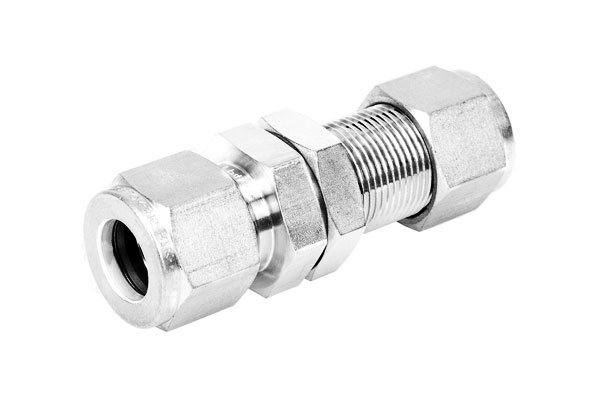
Ključna mehanička svojstva
| Nekretnina | Tipična vrijednost | Test standard |
| Zatezna čvrstoća | ≥ 795 MPa (115 Ksi) | ASTM A370, U ISO-u 6892-1 |
| Snaga prinosa (0.2% ofset) | ≥ 550 MPa (80 Ksi) | ASTM A370 |
| Izduženje (u 2 in./50 mm) | ≥ 15% | ASTM A370 |
| Tvrdoća | ≤ 32 HRC (~290 HBW) | ASTM E18 / E10 |
| Utjecaj žilavost (−50 °C) | > 100 J | ISO 148-1 / ASTM E23 |
| Modul elastičnosti | ~ 200 GPA (29 X 10⁶ PSI) | - |
| Snaga umora (Rotating Bending) | ~400 MPa (58 Ksi) | - |
5. Otpornost na koroziju 2507 Super dupleks nehrđajući čelik
Jedna od određivanja karakteristika 2507 Super dupleks nehrđajući čelik (US S32750) je li to Izvanredan otpor korozije,
particularly in harsh, bogat hloridom, and acidic environments where standard stainless steels often fail.
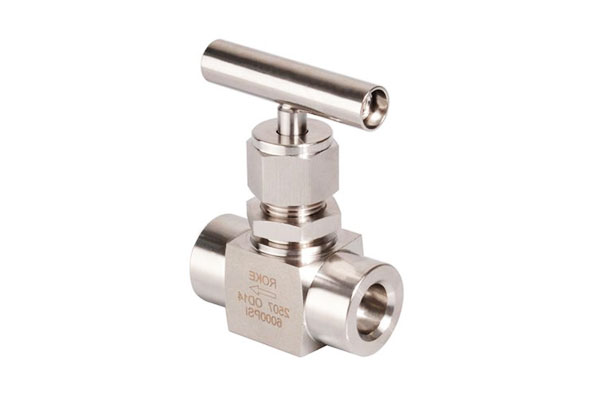
Ekvivalentni broj otpornosti na otpor (Drvo)
The Ekvivalentni broj otpornosti na otpor (Drvo) is a widely accepted index for evaluating localized corrosion resistance in stainless steels. It is calculated as:
PREN=%Cr+3.3×%Mo+16×%N
- Typical PREN for 2507: > 42
(Compared to ~25 for 316L and ~35 for 2205 dupleks)
This very high PREN value places 2507 in the category of super dupleks legure, meaning it performs excellently in pitting and crevice corrosion environments, particularly where chlorides are present.
Resistance to Major Forms of Corrosion
| Type of Corrosion | 2507 Performans |
| Pitting korozija | Excellent due to high Cr, Mo, and N; Drvo > 40 |
| Crevece Corrosion | Highly resistant; often used in flanged and gasketed joints in marine environments |
| Chloride Stress Corrosion Cracking (SCC) | Very high resistance up to ~300 ppm Cl⁻ at 150 ° C; superior to austenitic grades |
| Opći (Ujednačen) Korozija | Very low corrosion rate in acids, morska voda, and brine |
| Erosion–Corrosion | Strong mechanical integrity resists fluid-borne particulates and cavitation effects |
| Intergranularna korozija (IGC) | Immune when properly solution annealed and cooled rapidly |
| Galvanska korozija | Performs well when coupled with less noble metals, but care should be taken in design |
6. Fabrication and Welding of 2507 Super dupleks nehrđajući čelik
Fabricating and welding 2507 Super dupleks nehrđajući čelik (US S32750) requires careful attention to its unique microstructural balance i high-alloy composition.
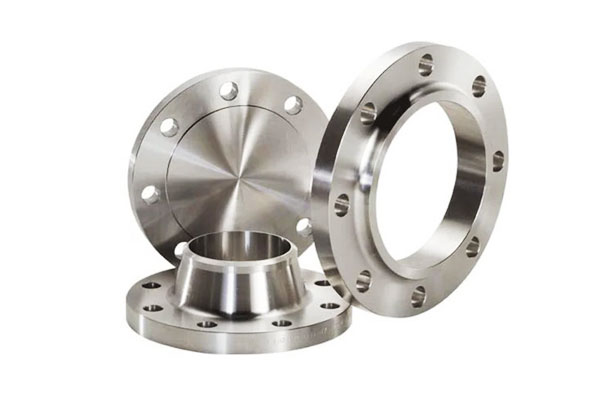
Melting and Casting
Proizvodnja 2507 Super dupleks nehrđajući čelik begins with melting high-purity raw materials such as iron, hrom, nikl, molibdenum, and nitrogen-bearing alloys in electric arc ili indukcijske peći.
Strict control over the melting process ensures accurate chemical composition and minimizes impurities.
Refining techniques like argon-oxygen decarburization (Aod) ili vakuum dekarburizacija kisika (Vod) are used to reduce carbon and sulfur levels while enhancing alloy uniformity.
The molten alloy is then cast into ingots, Billets, cvjetati, ili ploča, either by static or continuous casting.
To prevent defects such as poroznost, segregacija, ili skupljanje, the casting process must be carefully managed.
Cooling rates must be optimized to preserve the balanced duplex microstructure, as rapid cooling can suppress austenite formation and skew the ferrite-to-austenite ratio.
Opravdanost i obradavost
2507 ponuda moderate hot workability, with recommended forming temperatures between 950-1150 ° C (1742–2102 °F).
Hot-forming processes such as kovanje, kotrljanje, i ekstruzija are effective but require careful thermal management to prevent grain coarsening.
Zbog svog visoka čvrstoća i ponašanje za otvrdnjavanje rada, hladan rad is more demanding.
Operations like drawing, žigosanje, or cold rolling may necessitate Srednje žarenje to restore ductility and reduce internal stresses.
Welding of 2507 Super dupleks nehrđajući čelik
Welding is a critical process that must preserve the duplex structure and avoid harmful intermetallic phases.
Smjernice
| Aspekt | Najbolja praksa |
| Metal za punjenje | Koristiti matching filler (npr., ER2594 or E2594) to preserve corrosion resistance |
| Zaštitni gas | High-purity argon or argon with nitrogen (to stabilize austenite) |
| Preheat Temperature | Tipično nije potrebno (avoid overheating) |
| Interpass temperatura | Keep below 100 ° C (212 ° F) to prevent sigma phase formation |
| Post-weld Heat Treatment | Not generally required; brzo hlađenje after welding is essential |
Procesi zavarivanja
- GTAW (TIG) – Common for root passes and small welds.
- Zasjeniti (Ja) – Used for higher deposition rates.
- SMAW (Stick) – Suitable for field welding, using E2594 electrodes.
- Viđen (Potopljeni lučni zavarivanje) – For thick sections; requires control over heat input and flux composition.
Post-weld heat treatment and quality assurance
U nekim slučajevima, Post zavarivanje toplotne obrade (Pwht) može biti potrebno, especially for thick-walled components or when high-quality welds are required.
Pwht, typically solution annealing, can help to relieve residual stresses, improve the microstructure of the heat-affected zone, and restore the corrosion resistance of the welded joint.
Quality assurance during welding involves non-destructive testing methods such as ultrasonic testing, Radiografsko testiranje, and liquid penetrant testing to detect any internal or surface defects in the welds.
Visual inspection is also carried out to ensure proper weld bead formation and surface quality.
7. Heat Treatment and Processing
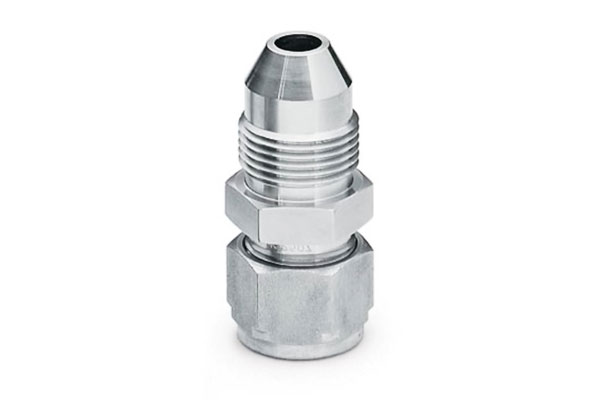
Solution Annealing Process
Solution annealing is a vital thermal treatment for 2507 Super dupleks nehrđajući čelik, designed to optimize its microstructure and performance.
The alloy is heated to 1020-1100 ° C (1868–2012 °F) and held at temperature long enough, obično 30 minuta do nekoliko sati, Ovisno o debljini odjeljka, to dissolve intermetallic phases (such as sigma or chi) and homogenize the distribution of alloying elements.
Following the soak period, the material must be rapidly cooled, most commonly by gašenje vode ili forced air cooling.
This rapid cooling is essential to prevent the formation of detrimental phases and to restore the desired balanced duplex structure (otprilike 50% feritna i 50% Austenite).
It also improves duktilnost, Otpornost na koroziju, and overall mechanical properties.
Cooling Rates to Preserve Duplex Structure
Maintaining appropriate cooling rates is critical during heat treatment. Brzo gašenje ensures the retention of a balanced austenite-ferrite microstructure, which underpins 2507’s superior performance.
- Sporo hlađenje through the temperature range of 600-950 ° C (1112–1742 °F) can result in precipitation of intermetallic compounds such as Sigma (a) ili Chi (x) faze, which severely impair both žilavost i Otpornost na koroziju.
- Excess ferrite can lead to reduced resistance to Stresna pukotina korozije (SCC), dok excess austenite may compromise strength and pitting resistance.
Stoga, controlled and rapid cooling is essential for structural integrity and service performance.
Vruće i hladno oblikovanje
Vruće formiranje
2507 can be effectively hot worked in the range of 950-1150 ° C (1742–2102 °F).
At these elevated temperatures, the alloy exhibits improved ductility, allowing it to be forged, valjana, or formed into complex shapes.
- To avoid phase imbalance, it is crucial to avoid working below 900 ° C (1652 ° F).
- Post-forming, components should be Ispaljeno rješenje i rapidly cooled to restore corrosion resistance and microstructural balance.
Hladno oblikovanje
Although feasible, cold forming 2507 is more challenging due to its visoka čvrstoća i work-hardening rate.
It may be used for achieving tighter tolerances, better surface finishes, or for strain hardening. Međutim:
- Specialized equipment is often required.
- Srednje žarenje may be necessary during multi-step operations to restore ductility and relieve internal stresses.
- Final Rješenje žarenje is recommended to ensure full corrosion resistance, posebno u kritičnim aplikacijama.
8. Ekvivalentne ocjene od 2507 Super dupleks nehrđajući čelik
| Standard / System | Razred / Imenovanje | Bilješke |
| Nas (Jedinstveni sistem numeriranja) | S32750 | Official UNS designation for 2507 Super dupleks |
| U (Evropska norma) | 1.4410 / X2CrNiMoN25-7-4 | European equivalent; used in EN 10088 and pressure equipment directives |
| Iz (Njemačka) | X2CrNiMoN25-7-4 (W.NR. 1.4410) | Same as EN, commonly used in German specifications |
| Anor (Francuska) | Z3CN25-06Az | French equivalent, aligned with EN/DIN composition |
| BS (British Standard) | 2507 | Sometimes referred to simply as 2507 in UK standards |
| ASTM / Asme | A240 / A790 / A815 (for S32750) | Defines plate, cijev, and fittings respectively |
| ISO | 2507 / S32750 | Used in ISO 15156 / NACE MR0175 for sour service applications |
| On je (Japan) | No direct JIS equivalent | Often substituted with imported 2507 / S32750 materials |
| Norsok | MDS D55 / M630 | For offshore oil & gas components (Norwegian standards) |
9. Prednosti i ograničenja 2507 Super dupleks nehrđajući čelik
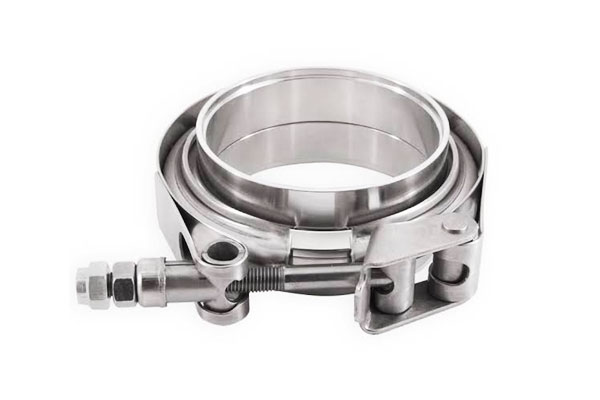
Prednosti od 2507 Super dupleks nehrđajući čelik
Izuzetan otpor korozijom
- With high chromium (25%), molibdenum (4%), i azot (0.3%) sadržaj, 2507 offers outstanding resistance to pitting, Crevece Corrosion, and chloride stress corrosion cracking (SCC).
- It has a Drvo (Ekvivalentni broj otpornosti na otpor) veći od 42, significantly outperforming 316L and 2205.
Superior Mechanical Strength
- 2507 isporučuje twice the yield strength of conventional austenitic stainless steels such as 304 i 316.
- Omogućava lighter wall thicknesses and structural weight reduction in pressure systems.
Excellent Fatigue and Impact Resistance
- The duplex microstructure ensures high toughness and fatigue resistance, even under cyclic or dynamic stress—crucial in offshore and subsea systems.
Cost Efficiency in High-Performance Applications
- Despite a higher initial price, 2507 ponuda duži radni vijek, Smanjeno održavanje, i lower material usage, providing excellent life-cycle cost efficiency.
Weldability and Fabrication Compatibility
- Though more complex to process than standard grades, 2507 može biti welded safely and is suitable for hot forming, obrada, i toplotni tretman.
Visoko pritisak & Mogućnost temperature
- Održava se Pouzdane performanse in thermally and mechanically demanding applications such as heat exchangers, desalination systems, i podložne posude.
Ograničenja 2507 Super dupleks nehrđajući čelik
Teška obrada
- Due to its high strength and work-hardening nature, machining requires special tooling, Niže brzine rezanja, and ample cooling.
Osjetljivost zavarivanja
- Improper welding may lead to the formation of Intertalličke faze (npr., Sigma faza), degrading both mechanical and corrosion performance.
- Zahtijeva strict control of welding temperature i correct filler metals.
High Initial Material Cost
- The use of alloying elements like Cr, Mo, and Ni raises the base material cost compared to common austenitic grades.
Limited Low-Temperature Ductility
- While better than ferritic grades, 2507 pokazuje reduced ductility below -50°C, što ga čini neprikladnim za kriogenu uslugu.
Not for Highly Reducing Acids
- Legura nije otporna na snažno smanjenje kiselina kao što su čista hidroholorična ili sumporna kiselina.
Special Handling Requirements
- Za održavanje otpornosti na koroziju, Mora se voditi računa da se izbjegne kontaminacija Čestice od ugljičnog čelika ili ekspozicija hlorida Tokom rukovanja i skladištenja.
10. Aplikacije od 2507 Super dupleks nehrđajući čelik
2507 Super dupleks nehrđajući čelik široko se koristi u različitim industrijama u kojima njegova vrhunska mehanička svojstva i odlična otpornost na koroziju pružaju značajne prednosti.
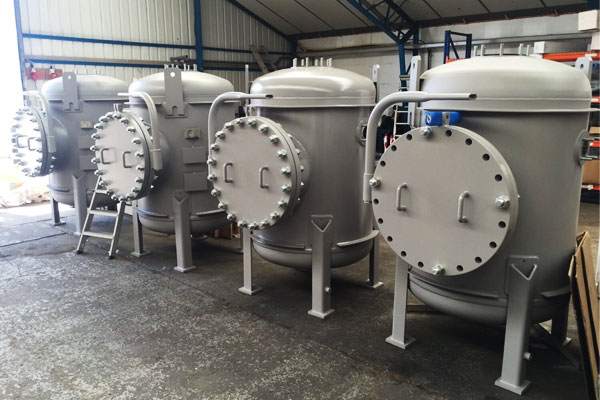
Application Fields
Ulja & Plinska industrija
Offshore platforme, Podsea cjevovodi, rizeri, i prerada opreme u kojoj su visoka čvrstoća i korozijski otpor kritični.
Hemijska i petrohemijska industrija
Reaktori, Izmjenjivači topline, i spremišta izloženi agresivnim hemikalijama i okruženjima koja sadrže hlorid.
Postrojenja za desalinacije
Komponente u reverznim sustavima osmoze i strukture unosa morske vode zbog odličnog otpora na morsku vodu koroziju.
Marine Engineering
Brodogradnja, Offshore konstrukcije, i sustavi za rukovanje morskom vodom koji zahtijevaju izdržljivost protiv korozije slane vode.
Pulp and Paper Industry
Equipment exposed to corrosive process chemicals and elevated temperatures.
Generacija energije
Kotlovi, Izmjenjivači topline, and cooling systems operating under harsh conditions.
Strukturni inženjering
Bridges and buildings in corrosive environments requiring high strength and durability.
Typical Application Components
- Ventili (kapija, globus, lopta, Provjerite ventile)
- Pumps and pump shafts
- Heat exchangers and condensers
- Pressure vessels and piping systems
- Prirubnice, Okov, i pričvršćivači
- Subsea equipment and risers
- Reactor vessels and storage tanks
- Desalination membranes and filtration units
11. Comparison with Other Stainless Steels
| Nekretnina / Značajka | 2507 Super dupleks nehrđajući čelik | 304 Nehrđajući čelik | 316 Nehrđajući čelik | 2205 Duplex nerđajući čelik | 904L Austenitic Stainless Steel |
| Hemijski sastav | ~ 25-26% CR, 6-7% U, 3-4% Mo, 0.2-0.3% N | ~18-20% Cr, 8-10.5% U, low Mo | ~16-18% Cr, 10-14% U, 2-3% Mo | ~ 22% CR, 5-6% U, 3% Mo, 0.14% N | ~20% Cr, 25% U, 4-5% Mo |
| Mikrostruktura | Dupleks (ferita + Austenite) | Austenitan | Austenitan | Dupleks | Austenitan |
| Zatezna čvrstoća (MPa) | 750-850 | ~520 | ~520 | 620-750 | ~600-700 |
| Snaga prinosa (MPa) | ~550-700 | ~ 210 | ~ 290 | 450-550 | ~300-400 |
| Otpornost na koroziju | Odličan (Drvo > 40) | Umjeren | Dobro | Vrlo dobar (Wood ~ 35) | Odličan (especially oxidizing media) |
| Resistance to Chloride SCC | Visoko | Niska | Umjeren | Visoko | Visoko |
| Temperaturni raspon | Up to 300-350°C | Up to 870°C | Up to 870°C | Up to 300°C | Up to 400°C |
| Izmišljotina & Zavarivanje | Umjeren (special care needed) | Odličan | Odličan | Umjeren | Umjeren |
| Trošak | Visoko | Niska | Umjeren | Umjeren | Vrlo visok |
| Tipične aplikacije | Harsh chemical, marine, ulja & plin | Prerada hrane, general corrosion environments | Marinac, Hemijska obrada | Ulja & plin, chemical industries | Highly corrosive chemical environments |
Sažetak:
- 2507 Super dupleks nehrđajući čelik offers superior strength and corrosion resistance compared to standard austenitic grades (304, 316), posebno u okruženju bogate hloridom.
It is ideal for demanding industrial applications where both mechanical performance and corrosion resistance are critical. - U poređenju sa 2205 Dupleks, 2507 provides enhanced corrosion resistance due to higher chromium, molibdenum, i sadržaj dušika, but at a higher cost.
- 904L Nerđajući čelik excels in highly oxidizing and acidic environments but is more expensive and generally lower in strength compared to 2507.
- 304 i 316 Nehrđajući čelik are more cost-effective for less aggressive environments but lack the high strength and SCC resistance of 2507.
12. Zaključak
2507 Super dupleks nehrđajući čelik stands at the intersection of mechanical superiority, Otpornost na koroziju, and service life reliability.
It is engineered for the most demanding industries where chloride-rich, kiseo, or high-pressure conditions prevail.
Despite its higher cost compared to conventional stainless steels, 2507’s long-term reliability and reduced maintenance requirements often justify the investment, especially in critical and extreme service conditions.
For industries requiring a material that can withstand harsh chemical exposure, high mechanical loads, i korozivna okruženja, 2507 Super Duplex Stainless Steel remains a highly recommended and trusted choice.
Langhe: Precizno livenje od nehrđajućeg čelika & Izrada usluge
Langhe je pouzdan pružatelj usluga Visokokvalitetno livenje od nehrđajućeg čelika i precizne usluge za proizvodnju metala, Serving industrije u kojima su performanse, trajnost, i otpornost na koroziju su kritični.
Sa naprednim proizvodnim mogućnostima i posvećenost inženjerskoj izvrsnosti, Langhe pruža pouzdano, Prilagođena rješenja od nehrđajućeg čelika za ispunjavanje najzahtjevnijih zahtjeva za aplikacije.
Naše mogućnosti od nehrđajućeg čelika uključuju:
- Investicijska livenja & Izgubljeni vosak
Visoko precizno livenje za složene geometrije, Osiguravanje uskih tolerancija i vrhunske površinske obrade. - Livenje pijeska & Oblikovanje školjkama
Idealno za veće komponente i ekonomična proizvodnja, posebno za industrijske i strukturne dijelove. - CNC obrada & Post-obrada
Kompletne usluge obrade, uključujući okretanje, glodanje, bušenje, poliranje, i površinski tretmani.
Bilo da su vam potrebne komponente visoko preciznosti, Složeni nehrđajući sklopovi, ili dijelovi za izrađen po mjeri, Langhe Da li je vaš pouzdan partner u proizvodnji od nehrđajućeg čelika.
Kontaktirajte nas danas da naučim kako Langhe mogu isporučiti rješenja od nehrđajućeg čelika s performansama, pouzdanost, i preciznost vaše industrijske zahteve.
FAQs
What is the difference between super duplex 2205 i 2507?
The main difference lies in their chemical composition and performance: 2507 has higher chromium, molibdenum, and nitrogen levels than 2205,
resulting in greater corrosion resistance (especially against chloride stress corrosion cracking) and higher mechanical strength.
2507 is considered a more premium, higher-performance alloy than 2205.
What is equivalent to Super Duplex 2507?
Materials equivalent to super duplex 2507 include UNS S32750 and ASTM A240 Type 2507.
In commercial terms, it corresponds to grades like SAF 2507 by Sandvik, X2CrNiMoN25-7-4 in EN standards, and Zeron 100 in proprietary alloys.
What is SAF 2507 materijal?
SAF 2507 Da li je komercijalno ime za super dupleks nehrđajući čelik 2507 proizveden od strane tehnologije Sandvik materijala.
Ima isti hemijski sastav i svojstva kao standard 2507 i široko se koristi za aplikacije koje zahtijevaju visoku otpornost na koroziju i čvrstoću.

